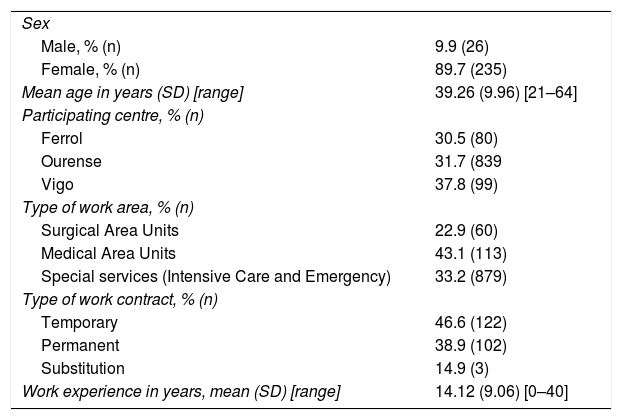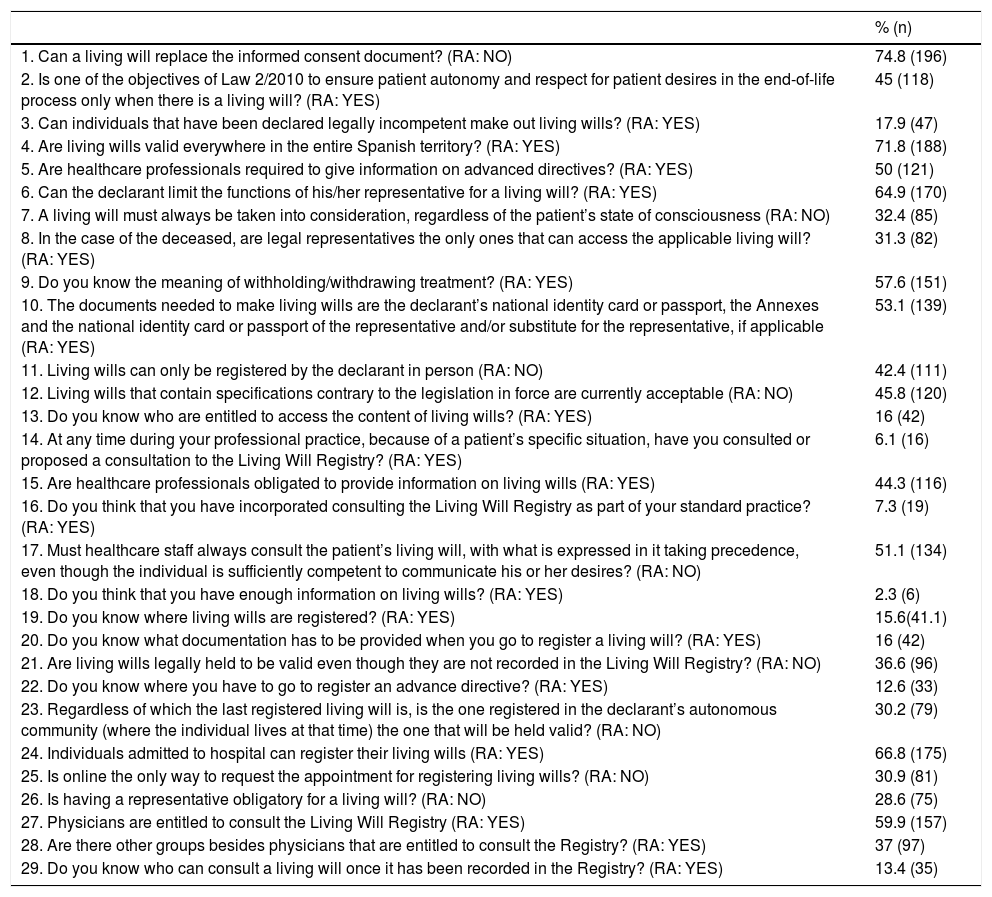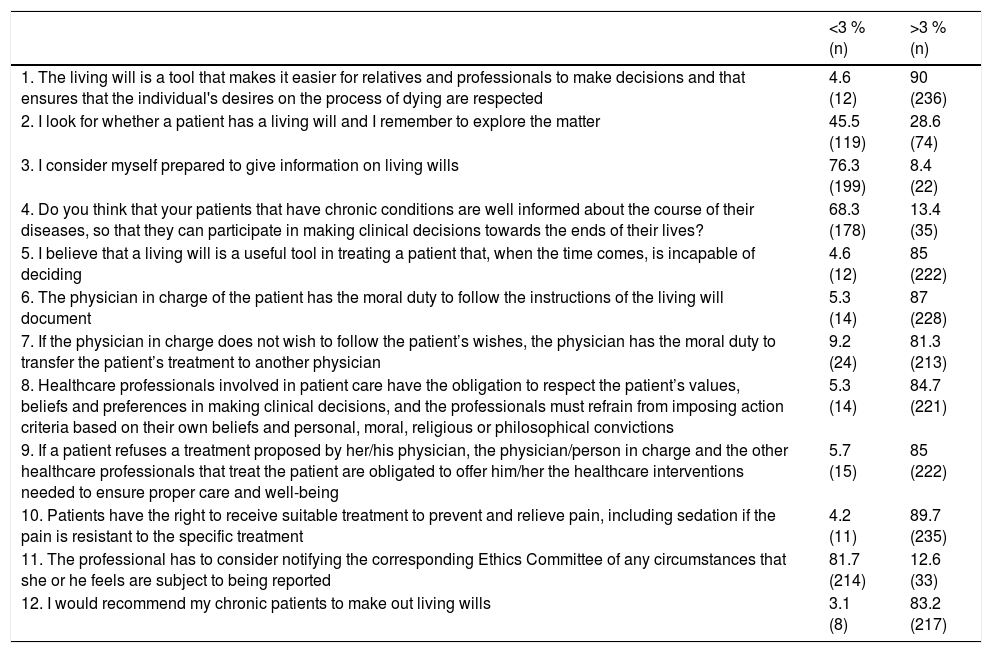To analyse the level of knowledge and attitudes concerning living wills of nurses working in three hospitals of Servizo Galego de Saúde (Spain).
MethodDescriptive, cross-sectional, multi-centre study. Stratified sampling was carried out with nurses from the University Hospital Complexes of Ourense, Ferrol and Vigo. A sample size of 239 individuals was calculated. The data was collected during the first semester of 2018 using a validated self-administered questionnaire (“Cuestionario de conocimientos y actitudes de los profesionales sanitarios en el proceso de declaración de voluntades vitales”).
ResultsA total of 262 nurses participated. Fifty percent believe that health professionals are obliged to inform about living wills. Two percent consider that they have enough information on the subject, and this is demonstrated in the knowledge questions, where between 61–93% fail in the questions related to the documentation, use, and their legal aspects. Eighty-four percent consider that they have the obligation to uphold the values and beliefs of patients, and 89% that patients have the right to receive and decide on the right care. Thirteen percent consider that patients are not well informed about living wills, and 83% would recommend to chronic patients that they complete a living will.
ConclusionsNurses have a great lack of knowledge about the legal aspects and the use of living wills, which makes them feel unable to inform their patients about them. Despite of the lack of knowledge, their attitude is positive and most of them state that they would recommend them to their patients.
Analizar el grado de conocimiento y la actitud sobre las Voluntades Anticipadas de las enfermeras que trabajan en tres hospitales del Servizo Galego de Saúde (España).
MétodoEstudio descriptivo, transversal, multicéntrico. Se realizó un muestreo estratificado a enfermeras de los Complejos Hospitalarios Universitarios de Ourense, Ferrol y Vigo. Se calculó un tamaño muestral de 239 individuos. La recogida de los datos se realizó durante el primer semestre de 2018 mediante un cuestionario validado autocumplimentado (“Cuestionario de conocimientos y actitudes de los profesionales sanitarios en el proceso de declaración de voluntades vitales”).
ResultadosParticiparon un total de 262 enfermeras. Un 50% cree que los profesionales sanitarios están obligados a informar sobre las Voluntades Anticipadas. Un 2% considera que tiene suficiente información sobre el tema, y así lo demuestran en las preguntas de conocimientos, donde entre un 61–93% fallan en las preguntas relacionadas con la documentación, uso y aspectos legales de las mismas. Un 84% considera que tiene la obligación de respetar los valores y creencias de los pacientes y un 89% que los pacientes tienen derecho a recibir y decidir sobre la atención idónea. Un 13% considera que los pacientes no están bien informados sobre Voluntades Anticipadas, y un 83% recomendaría a sus pacientes crónicos la realización del documento de Voluntades Anticipadas.
ConclusionesLas enfermeras tienen un gran desconocimiento sobre los aspectos legales y el uso de las Voluntades Anticipadas, lo que le hace sentirse poco capaces para informar a sus pacientes sobre las mismas. A pesar de la falta de conocimiento, su actitud es positiva y la mayoría manifiesta que las recomendaría a sus pacientes.









